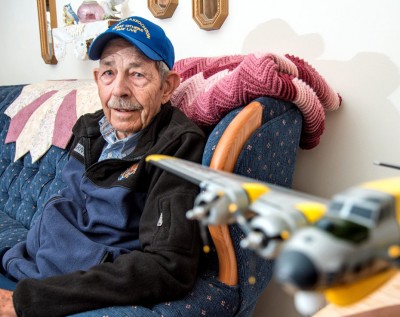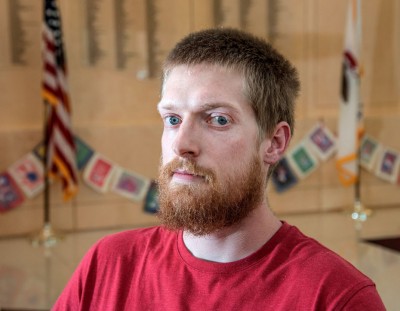Dean Rudicil
By Paul Wood
ST. JOSEPH — Sgt. Dean Rudicil served alongside a unit assigned to blow up bridges if the Soviet Union invaded Germany.
But the St. Joseph native, 88, was a mechanic, not an explosives expert.
He could see the Soviets right across the river from West Germany, in Czechoslovakia, in the 1950s, a nervous time in the Cold War.
Both sides were wary of attacks.
“We didn’t know if an alert was real or not,” he said. “We never knew what to expect.”
“It kept us on edge,” he said, “but never a dull moment,” and the same was probably true for the enemy.
Rudicil enlisted in the Army right out of high school and went to boot camp at Ford Leonard Wood in Missouri.
He spent three years in Europe, traveling around places like Bremerhaven or Passau, where the Danube, Inn and Ilz rivers come together.
Rudicil was eventually assigned as a replacement in a 7th Army combat engineer unit, but he was a mechanic.
At the time, the Marshall Plan had helped make West Germany an attractive target. As part of the plan, the U.S. sent nearly $12 billion (about $100 billion adjusted for inflation) to help rebuild Western European economies after the war.
West Germany was recovering from bombing and occupation, followed by severe food shortages, but it was bouncing back with Western assistance. In only five years, much of the country’s steel and factories were returning to normal, “the West German miracle.”
Rudicil said he had mostly comfortable accommodations, but units on bivouac slept in tents when temporary threats popped up, and they had to move to be near bridges.
“Back then, the Russians were pretty active in Czechoslovakia, so we had 485 engineers along the border,” Rudicil said.
The bridges were already armed, he said. There were channels stuffed with TNT or C4 plastic explosive.
“All they needed was the fuse,” Rudicil said.
The alerts came two or three times a month, he said.
“When we went, we took all the equipment with us,” he said. “We had a bag of necessaries we could take in any emergency.”
His kit included a heavy tool box.
Soviet-led forces were estimated at 35,000 “alert police,” including infantry, artillery, tank and engineering divisions.
Sometimes the borders could be confusing, Rudicil said.
“There were always so many of them at the border. One time when the Soviets got lost and went into Germany, they turned them around,” he said. “No shots were fired.”
Finally, Rudicil came home safely to the family business.
“For 40 years, we had a garage,” he said.
Do you know a veteran who could share a story about military service? Contact Paul Wood at pwood@news-gazette.com.
Read more stories from local veterans:
 Ted Barnhart
CHAMPAIGN — Flying rescue missions during the Korean War, Ted Barnhart was the radar operator as his B-17 skimmed over p …
Ted Barnhart
CHAMPAIGN — Flying rescue missions during the Korean War, Ted Barnhart was the radar operator as his B-17 skimmed over p …
 Brent Blackwell
URBANA — In five deployments to Afghanistan, Staff Sgt. Brent Blackwell was a medic for an elite unit, the Army Rangers, …
Brent Blackwell
URBANA — In five deployments to Afghanistan, Staff Sgt. Brent Blackwell was a medic for an elite unit, the Army Rangers, …
 David Steinfels
URBANA — In four years assigned to a helicopter unit, Cpl. David Steinfels experienced a lot of hard landings, fast-ropi …
David Steinfels
URBANA — In four years assigned to a helicopter unit, Cpl. David Steinfels experienced a lot of hard landings, fast-ropi …